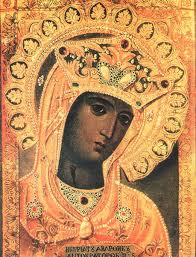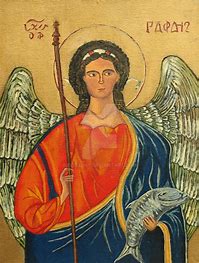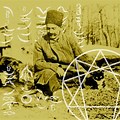Late Cardinal Pell unmasked as secret Vatican blogger on ‘catastrophic’ Pope Francis












Late Cardinal Pell unmasked as secret Vatican blogger on ‘catastrophic’ Pope Francis
Australian cardinal George Pell described Pope Francis’s papacy as “a disaster” in a secret blog as he grew increasingly disillusioned with the pontiff in the years before his death.

In some of the strongest language used by a Vatican critic of Pope Francis, Cardinal Pell said his decade-long papacy had become a “catastrophe”.
Cardinal Pell died on Tuesday at the age of 81 after complications from hip surgery.
At one time the third most senior figure in the Vatican, he was unmasked as the anonymous author “Demos” who published his concerns and recommendations for whoever succeeds Pope Francis as the next pontiff on a Vatican blog called Settimo Cielo.
He condemned what he called Pope Francis’s “weakened” teaching of Christian doctrine and his openness on issues including homosexuality, women clergy, celibacy for priests and the granting of communion to remarried divorcees.
Pope Francis was “intellectually” inferior to his predecessors, John Paul II and Benedict XVI, he claimed.
The cardinal also alleged that “phone tapping is regularly practised” in the Vatican.


The Australian prelate said that inefficiency and corruption over the last three decades had cost the Vatican at least €100 million, possibly €200 million.
“Commentators of every school, if for different reasons, agree that this pontificate is a disaster in many or most respects; a catastrophe,” Cardinal Pell wrote under the pseudonym.
Pope Francis appointed Cardinal Pell as his finance minister and tasked him with rooting out corruption and inefficiency within the Holy See.
But that job was interrupted when the cardinal had to return to Australia to face accusations that he had sexually abused two altar boys while he was serving as archbishop of Melbourne. He was convicted in 2018 and spent 13 months in jail but was acquitted on appeal in 2020.
After his release he became increasingly critical of Pope Francis’s attempts at reform.
In a further attack on Pope Francis, Cardinal Pell wrote an article in the days before he died in which he described the pontiff’s decision to canvas Catholics worldwide on grassroots issues like the role of women in the church as a “toxic nightmare”.
Cardinal Pell wrote the article for The Spectator, which published it on Wednesday, a day after he died in Rome.
The revelation that a formerly close ally of Pope Francis had become one of his harshest critics comes at the end of a turbulent couple of weeks for the Vatican, in which Pope Emeritus Benedict XVI died, his personal secretary published a book that was critical of Francis, and the Holy See opened an investigation into the mysterious disappearance of the teenage daughter of a Vatican employee 40 years ago.
Despite the harsh criticism from beyond the grave, Pope Francis will deliver a final salute to Cardinal Pell during a funeral mass at the Vatican on Saturday.
Pope Francis could be ousted in 'secret plan' by Vatican hardliners











Pope Francis could be ousted in 'secret plan' by Vatican hardliners
Vatican conservatives are waging a “secret plan” to put Pope Francis under such stress that he resigns, it has been claimed.

The campaign against the Argentinian pontiff began just days after the death of his predecessor, Benedict XVI.
Despite previously stating he will resign if his health deteriorates, it was thought highly unlikely that Francis would decide to step down while Benedict was still alive to avoid there being three Popes living in the Vatican – a situation without precedent that would have embarrassed the Catholic Church.
But with Benedict’s death on December 31, resignation is now a real prospect. That has opened the way for conservatives, who oppose his stance on issues ranging from homosexuality, abortion, communion for remarried divorcees and celibacy for priests, to start moving against him.
They have long seen him as being too critical of capitalism and too liberal on illegal immigration, with some going so far as to deride him as a “communist”.
“The secret plan will be formulated on various axes and phases, but it will have one objective – to place the pontificate under such stress that Francis will have to resign,” an Italian cardinal told La Stampa newspaper on Sunday.
The campaign would depend on “the progressive weakening of the Holy Father as well as his doctrinal choices, which will create a great deal of discontent which can be used against him.
“The opponents of Francis know that right now they are in a minority, that they will need time both to win consensus and to weaken Bergoglio,” said the cardinal, referring to Francis’s name before he became pontiff a decade ago.

Some of his enemies will operate “in the shadows’, while others will be more open in their criticism, the cardinal said.
Among the latter was Cardinal Georg Gänswein, who for 19 years was personal secretary to Pope Emeritus Benedict XVI.
Nicknamed “the George Clooney of the Holy See” for his good looks, he has in recent days been highly critical of Pope Francis.
In an interview with a German newspaper, he said that Francis’s decision to crack down on the use of the traditional Latin mass had “broken the heart” of Pope Benedict.
“It hit him pretty hard,” he told Die Tagespost, describing the Latin mass as “a spiritual treasure”.
And in a soon-to-be-published book, titled Nothing But the Truth, Archbishop Gänswein, 66, described how he was left “shocked and speechless” after Pope Francis demoted him from the position of Prefect of the Papal Household in 2020.
He said he was never able to reach “a climate of trust” with Francis.

Other prominent conservative critics of the Pope include Raymond Burke, an American cardinal, and Gerhard Ludwig Müller, a German cardinal and friend of Pope Emeritus Benedict.
Archbishop Timothy Broglio, the president of the US Conference of Catholic Bishops, is also said to be among Francis’s critics and recently told an Italian newspaper that the prospect of the Pope resigning was now “more feasible” after the death of Benedict.
Pope Benedict surprised the world when he announced his resignation in 2013, informing, in Latin, a hall full of cardinals of his decision.
There are many in the Catholic Church who “dream of hearing those words again, but this time in (Pope Francis’) unmistakable Spanish (Argentinian) accent,” Gianluigi Nuzzi, a prominent Vatican commentator, wrote in La Stampa.
Even allies of Pope Francis admit there is a schism, if not a deep rift between conservatives and progressives at the highest levels of the Catholic Church.
“There are tensions, as there have always been in the history of the Church. It is not a monolithic block,” said Monsignor Vincenzo Paglia, the president of the Pontifical Academy for Life, a Vatican department.
But others insisted there was little prospect in the short-term of Pope Francis throwing in the towel.
“He will resign if he is no longer able to deal with the challenges of his pontificate, but for now he keeps going,” said Walter Kasper, a German cardinal.
“For the moment he is not ready to step down. It is obvious that there is a clash between progressives and conservatives, but we need to keep up the dialogue between different points of view.”
Reference: The Telegraph: Story by Nick Squires •
Pope warns Vatican staff an 'elegant demon' lurks among them









Pope warns Vatican staff an 'elegant demon' lurks among them
VATICAN CITY (AP) — Pope Francis warned Vatican bureaucrats on Thursday to beware the devil that lurks among them, saying it is an “elegant demon” that works in people who have a rigid, holier-than-thou way of living the Catholic faith.
Francis used his annual Christmas greeting to the Roman Curia to again put the cardinals, bishops and priests who work in the Holy See on notice that they are by no means beyond reproach and are, in fact, particularly vulnerable to evil.
Francis told them that by living in the heart of the Catholic Church, “we could easily fall into the temptation of thinking we are safe, better than others, no longer in need of conversion.”
“Yet we are in greater danger than all others, because we are beset by the 'elegant demon,' who does not make a loud entrance, but comes with flowers in his hand,” Francis told the churchmen in the Hall of Blessings of the Apostolic Palace.
Francis has long used his Christmas address for an annual dressing down of Vatican bureaucrats, taking them through a typical Jesuit-style “examination of conscience” to help them repent in the run-up to Christmas.
His most blistering critique came in 2014, when he listed the “15 ailments of the Curia” that some suffered, including the “terrorism of gossip,” ″spiritual Alzheimer’s” and of living “hypocritical” double lives. The following year, Francis offered an antidote to the sins by listing the “catalog of virtues” he hoped they would instead follow, including honesty, humility and sobriety.
This year was similar in tone, and Francis reprised his critique of forms of abuse that even religious people use against one another.
"There isn't only the violence of weapons, there is verbal violence, psychological violence, the violence of abuse of power, the hidden violence of gossip," Francis said, in a possible reference to a new case of abuse of authority that is roiling his own Jesuit order. “Don't take advantage of your own position and role to mortify the other."
Beyond that, Francis appeared to also want to take broader aim at arch-conservatives and traditionalists who have become the pope's biggest critics. Francis blasted their way of living the faith, insisting that being Catholic doesn't mean following a never-changing set of dicta but is rather a “process of understanding Christ’s message that never ends, but constantly challenges us."
 Pope Francis talks during an audience with Vatican's employees in the Paul VI Hall, at the Vatican, Thursday, Dec. 22, 2022. (AP Photo/Andrew Medichini)© Provided by The Associated Press
Pope Francis talks during an audience with Vatican's employees in the Paul VI Hall, at the Vatican, Thursday, Dec. 22, 2022. (AP Photo/Andrew Medichini)© Provided by The Associated Press“True heresy consists not only in preaching another gospel, as Saint Paul told us, but also in ceasing to translate its message into today’s languages and ways of thinking,” Francis said.
Traditionalist Catholics have denounced Francis’ emphasis on mercy and openness to doctrinal wiggle room on issues such as sacraments for divorced and civilly remarried Catholics. Some have even gone so far as to accuse him of heresy for some of his gestures and preaching, including allowing “pagan” statues in the Vatican.
Francis dedicated the bulk of his speech this year to the need to be vigilant about the work of the devil, picking up a theme he recently discussed during his weekly catechism lessons with the general public.
He told the Vatican bureaucrats it’s not enough to merely condemn evil or root it out, since it often comes back in different guises, stronger than before. Francis used the term “we” repeatedly, suggesting he includes himself among those in the Vatican who must remain mindful of the devil in their midst.
“Before, it appeared rough and violent, now it shows up as elegant and refined,” he warned. “We need to realize that and once again to unmask it. That is how these ‘elegant demons’ are: they enter smoothly, without our even being conscious of them," he said.
Francis told the story of a 17th century convent in Port Royal, France, where the superior, Mother Angelique, had charismatically reformed herself and her monastery after evil crept in, but the devil came back in the form of a rigid faith.
“They had cast out the demon, but he had returned seven times stronger, and under the guise of austerity and rigor, he had introduced rigidity and the presumption that they were better than others,” Francis warned.
Some of Francis' critics themselves were in the audience along with his supporters. Returning to the annual Christmas ceremony was Cardinal Angelo Becciu, whom Francis fired in 2020 and stripped of his rights as a cardinal after the pope accused him of financial misconduct.
Becciu is currently on trial, along with nine other people, in the Vatican criminal court and denies wrongdoing. Francis recently allowed him to resume participating in Vatican ceremonies, a sign the pope thinks he perhaps jumped the gun in sanctioning Becciu before a court ruled on his guilt or innocence.
When is Epiphany 2023? The date, meaning of Twelfth Night and traditions behind the feast day explained









When is Epiphany 2023? The date, meaning of Twelfth Night and traditions behind the feast day explained
On Friday 6 January many Christians will celebrate Epiphany – a feast day that has different meanings depending on the church you follow.
This date is preceded by Twelfth Night, considered the end of the Christmas period, and the day on which many take their trees and decorations down.
Here’s everything you need to know about the Epiphany, Twelfth Night, and how they are celebrated.
What is Epiphany?
Epiphany is a Christian feast day that always falls on 6 January.
It originated in the East where Christians celebrate the birth and baptism of Jesus. It is known as Theophany in the Eastern Orthodox tradition.
The Western Church began following it in the 4th century as the day the wise men were led by the star to visit baby Jesus, according to the story of the Nativity.
According to the Bible and to the Gospel of Matthew, the three wise men called Melchior, Caspar and Balthazar were drawn across the desert to meet the baby Jesus by the star of Bethlehem, and came bearing gifts of gold, frankincense and myrrh.
Protestant churches celebrate Epiphany as a season until Ash Wednesday, but in Roman Catholicism it is celebrated as a single day.
How Epiphany is celebrated varies depending on cultural beliefs and traditions, but in many countries it is a time to eat well and put away your Christmas decorations.
In France, people celebrate Le Jour des Rois, The Day of Kings, and children and adults enjoy la galette des Rois – or cake of kings. A tradition exists where the youngest of the family will go under the table and attribute each slice to someone randomly.
In Spain and some Latin American countries the holiday is marked with parades and another day off work.
In the Eastern Orthodox Christian religion, Christmas is celebrated on the date of Epiphany.
What is Twelfth Night?
The observance of Twelfth Night is widely considered to mark the coming of the Epiphany.
Different Christian traditions define the date of Twelfth Night as either the 5 or 6 of January, depending in part on how the 12 days of Christmas are calculated.
For many, Christmas Day marks the “first day”, which would give Twelfth Night its earlier date, while others believe the 12 days of Christmas begin on Boxing Day.
Matters are further confused by the consideration of whether Twelfth Night concludes the 12th day after Christmas itself, or falls the evening before.
But Professor Nick Groom, of the English department of the University of Exeter, who has researched Christmas traditions, concludes: “Twelfth Night is Twelfth Day’s Eve – we still talk about Christmas Eve as being Christmas Night.”
By that basis, Twelfth Night in 2023 would fall on Thursday 5 January this year.
Why do people take their Christmas decorations down on Twelfth Night?
According to tradition, Christmas trees and decorations should be taken down on either Twelfth Night or Epiphany to avoid bad luck after the season of merriment.
The belief has developed in modern times, with Professor Groom explaining: “It was basically the Victorians who decided that Christmas decorations should be taken down after 12 days because they wanted to get everybody to work.
“They fixed it as the season of Christmas in the 19th century.”
Indeed, before this unfortunate abridging of the festive season, the Tudors continued celebrating until 1 February.
This date marked the eve of Candlemas, a Christian festival marking the day the infant Jesus was presented to the God in the Temple at Jerusalem.
Reference: Story by Alex Finnis • Yesterday 16:27
Articles-Latest
- Koran burning conviction sparks fury as blasphemy law 'returns to UK'
- Robert Francis Prevost - Pope Leo XIV
- Pope Francis' death follows recent health challenges. Here's what we know about how he died.
- Easter April 2025 - international Celebrations
- The Rule of the twelve psalms -Worthy is the Lamb
- Religion in Africa Before Christianity and Islam
- 6 The Origin of Yahweh
- Dumo Di Milano
- What Did the Crow Tribe Believe In: Discover The Beliefs!
- 7 Reasons Historic Christianity Rejects the Book of Enoch
- 8 Breathtaking Mountain Monasteries Around the World
- Ethiopian Bible is oldest and most complete on earth
- Muhammad Muhammad was a prophet and founder of Islam.
- World Day of the Poor – SVP Christmas Campaign 2024
- Pope Francis to open 5 sacred portals on Christmas Eve — for a ritual that’s never been done before
- The 144,000 in Revelation
- Over 73 dead bodies 'used for meditation', 600 crocs in a pond, found in two Thai temples
- Occultism: Western Occult Tradition
- What is a Mudra
- Blood Sacrifices: Ancient Rituals of Life and Death
Articles-Most Read
- Home
- Let There Be Light
- Plants that feel and Speak
- The Singing Forest
- The Singing Forest-2
- Introduction
- Meditation
- Using Essential Oils for Spiritual Connection
- Heaven Scent
- Plants that Feel and Speak-2
- Purification
- Making the Spiritual Connection
- Anointing
- Essential Oils: The unseen Energies
- The Sanctity of Plants
- The Aroma Of Worship-Foreward
- The Aroma Of Worship - Introduction
- Methods Of Use
- Spiritual Blending
- Handling and Storage









